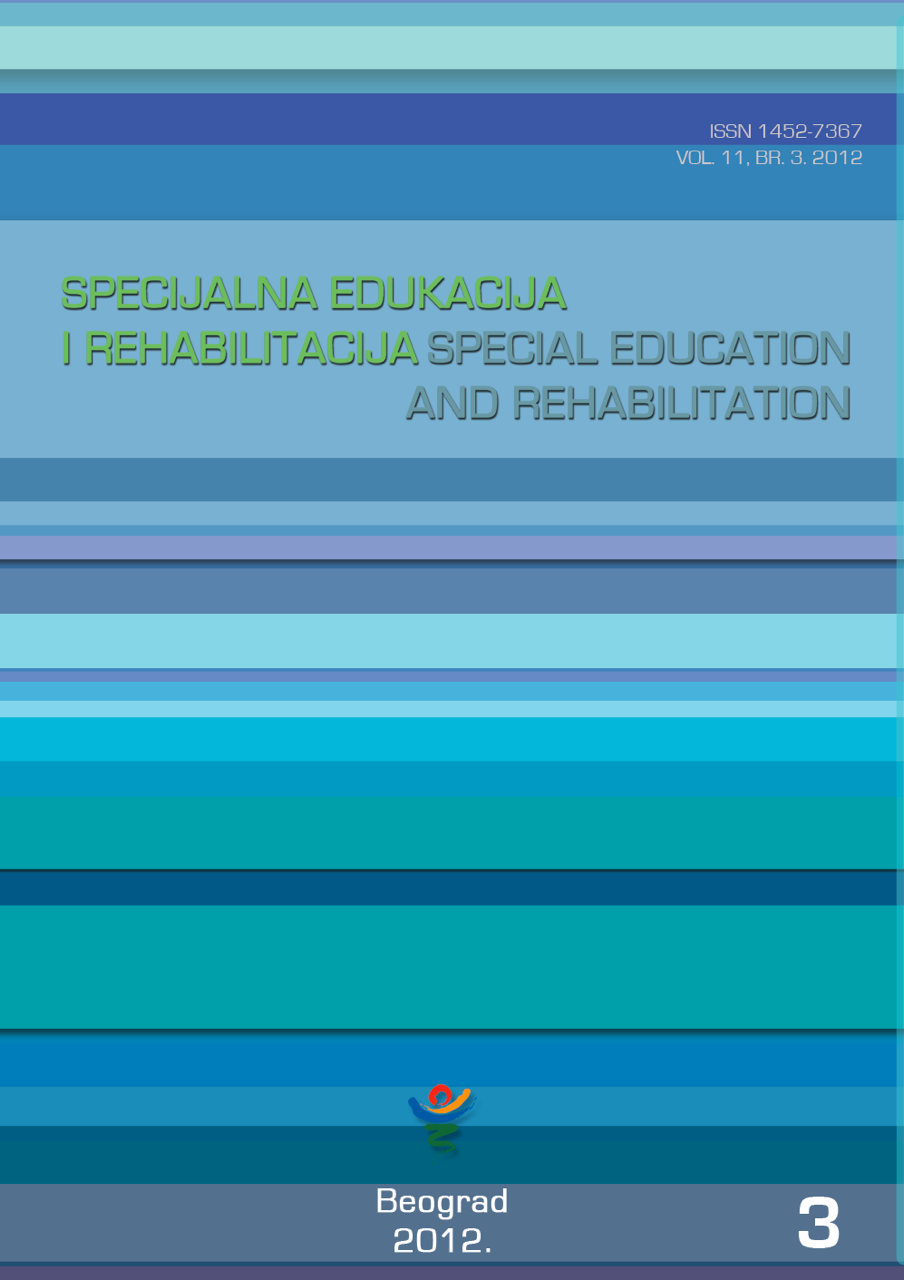INHIBITORY CONTROL AS A FACTOR OF ADAPTIVE FUNCTIONING OF CHILDREN WITH MILD INTELECTUAL DISABILITY
Abstract
Bearing in mind that the adaptive behaviour is one of the defining parameters of intellectual disability, determining of the influence of inhibitory control on adaptive functioning in children with mild intellectual disability was defined as a basic aim of this research. The sample covered 95 children with mild intellectual disability (MID), of both genders, from 10 to 14 years of age.
By analysis of the data of schools’ pedagogical-psychological departments, data on age and intellectual abilities of participants were collected. Inhibitory control was estimated by Go no Go task, consisted of Conflict Response and Response Delay sets. Adaptive skills data were gained on the basis of a standardized interview with special education teachers, by applying of AAMR Scale of adaptive functioning. On the basis of factor analysis, Scale scores were grouped in five factors: Personal independence, Social Independence, Personal and Social Responsibility, Social Adaptability and Personal Adaptability.
Significance of relations among the observed variables was established by Pearson’s correlation coefficient, by partial correlation coefficient and multifactorial variance analysis.
Based on the analysis of results a statistically significant relationship between errors in the execution of tasks that belong to the set of conflict motor responses and adaptive functioning (p ≤ 0.000) was established. The relationship between errors that belong to the set of the response delay, and adaptive functioning is not statistically significant (p = 0.324).
Inhibition of the interference response is a significant factor of practical (partial η2 = 0.227), conceptual (partial η2 = 0.341) and social (partial η2 = 0.131) adaptive skills, while the response delay is significantly associated with the conceptual skills (p = 0.029) only.
Inhibitory control did not prove itself a significant factor in behaviour problems of externalizing and internalized type.
Key words: mild intellectual disability, inhibitory control, adaptive functioning

